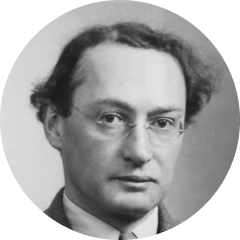I. A. Richards
(1893–1979)
I. A. Richards (1893–1979): theorist of literature, education and communication studies. At Cambridge University he studied history but switched to moral sciences, graduating from Magdalene College, where in 1922 he was appointed College Lecturer in English and Moral Sciences. A spell-binding lecturer, he was to the fore in the advancement of the English Tripos. His early writings – The Foundations of Aesthetics (with C. K. Ogden and James Wood, 1922), The Meaning of Meaning (also with Ogden, 1923), Principles of Literary Criticism (1924), Science and Poetry (1926), Practical Criticism: A Study of Literary Judgment (1929) – are foundational texts in modern literary studies. After teaching at National Tsing Hua University in Peking, 1929–30, he repaired for the remainder of his career to Harvard University, where he was made a university professor in 1944. Other works include Mencius on the Mind (1932), Coleridge on Imagination (1934), The Philosophy of Rhetoric (1936), and Interpretation in Teaching (1938), as well as translations from Plato and Homer. He was appointed Companion of Honour in 1963, and awarded the Emerson–Thoreau Medal of the American Academy of Arts and Sciences, 1970. See Selected Letters of I. A. Richards, CH, ed. John Constable (1990); John Constable, ‘I. A. Richards, T. S. Eliot, and the Poetry of Belief’, Essays in Criticism (July 1990), 222–43; I. A. Richards and his Critics, ed. John Constable – vol. 10 of I. A. Richards: Selected Works 1919–1938 (2001) – John Paul Russo, I. A. Richards: His Life and Work (1989).
